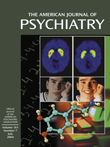Prevention of Postpartum Depression: A Pilot Randomized Clinical Trial
Abstract
OBJECTIVE: The authors attempted to reduce the rate of postpartum depression in high-risk women and to increase the time to recurrence. METHOD: Nondepressed pregnant women with at least one past episode of postpartum major depression were recruited into a randomized clinical trial. Mothers were assigned randomly to a 17-week trial of sertraline or placebo immediately after birth and assessed for 20 sequential weeks with the Hamilton Rating Scale for Depression. RESULTS: Of 14 subjects who took sertraline, one (7%) suffered a recurrence. Of eight subjects who were assigned to placebo, four (50%) suffered recurrences. This difference was significant. The time to recurrence was significantly longer in the sertraline-treated women than in the placebo-treated women. CONCLUSIONS: Sertraline conferred preventive efficacy for postpartum-onset major depression beyond that of placebo.



